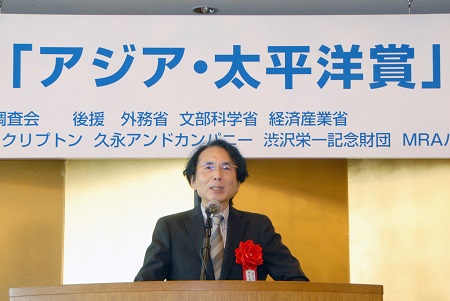 小笠原欣幸为东京外国语大学大学院综合国际学研究院教授。专门研究台湾政治丶台湾的选举丶两岸关系,在日本发表〈2016年台湾总统丶立法委员选举分析〉丶〈从地方基层解读台湾的选举:以云林县为案例的研究〉丶〈从马英九的博士论文解读日台渔业谈判〉丶〈中国对台政策的发展:从江泽民到胡锦涛〉丶〈2008年台湾总统选举分析〉、《台湾総統選挙》(東京:晃洋書房,2019)等学术著作。以《台湾総統選挙》获得第32回亚细亚・太平洋奖的特别奖、第15回樫山純三奖的学術書奖。经常访问台湾,访谈许多朝野政治人物包括总统丶立法委员丶县市长丶议员以及村里长。
小笠原欣幸为东京外国语大学大学院综合国际学研究院教授。专门研究台湾政治丶台湾的选举丶两岸关系,在日本发表〈2016年台湾总统丶立法委员选举分析〉丶〈从地方基层解读台湾的选举:以云林县为案例的研究〉丶〈从马英九的博士论文解读日台渔业谈判〉丶〈中国对台政策的发展:从江泽民到胡锦涛〉丶〈2008年台湾总统选举分析〉、《台湾総統選挙》(東京:晃洋書房,2019)等学术著作。以《台湾総統選挙》获得第32回亚细亚・太平洋奖的特别奖、第15回樫山純三奖的学術書奖。经常访问台湾,访谈许多朝野政治人物包括总统丶立法委员丶县市长丶议员以及村里长。Full Text
簡体字 / 正體字 / English摘要:
2020年台湾总统选举,于1月11日进行投、开票。这次选举是要决定是否延续蔡英文政府。另外,这次选举不仅是中国对台湾的影响力空前高涨,而且是在美中对立局势下迎来的首次选举,因此引起了国内外的关注。
本文通过总统选举以及同时举行的立法委员选举的结果进行整理、分析,探讨蔡英文的胜因、韩国瑜的败因,并且结合在选区的田野调查,提出了以下结论。
2020年选举结果与上次2016年选举结果差不多了,台湾选民选择继续支持蔡英文领导的民进党政府。选战的结构也相同的,民进党乘着广义的台湾认同扩大的潮流获胜。另外,国民党基本上与台湾认同相处得不太好,即使在地方性选举有所胜选,到了全国性选举很不利的情况显现。这表示台湾政治进入民进党相对优势时期。
选战过程中,蔡英文总统明确否定“一国两制”,表态支持香港的抗议活动,还不断地与中国政治体制相比,辩护台湾的自由民主政治体制。国民党的韩国瑜候选人面对中国习近平主席的统一压力无法明确表明如何捍卫中华民国。其结果是蔡总统以台湾选举史上最高票817万票成功连任。在同时举行的立法委员选举中,民进党维持过半的席数。台湾选民选择支持蔡总统的有关“台湾应有的状况”的主张,给予民进党再四年“完全执政”的机会。台湾民意在2020年选举中,表态不接受中国主张的统一,也拒绝了“一国两制”。
摘要:
2020年台灣總統選舉,於1月11日進行投、開票。這次選舉是要決定是否延續蔡英文政府。另外,這次選舉不僅是中國對台灣的影響力空前高漲,而且是在美中對立局勢下迎來的首次選舉,因此引起了國內外的關注。
本文透過總統選舉以及同時舉行的立法委員選舉的結果進行整理、分析,探討蔡英文的勝因、韓國瑜的敗因,並且結合在選區的田野調查,提出了以下結論。
2020年選舉結果與上次2016年選舉結果差不多了,台灣選民選擇繼續支持蔡英文領導的民進黨政府。選戰的結構也相同的,民進黨乘著廣義的台灣認同擴大的潮流獲勝。另外,國民黨基本上與台灣認同相處得不太好,即使在地方性選舉有所勝選,到了全國性選舉很不利的情況顯現。這表示台灣政治進入民進黨相對優勢時期。
選戰過程中,蔡英文總統明確否定「一國兩制」,表態支持香港的抗議活動,還不斷地與中國政治體制相比,辯護台灣的自由民主政治體制。國民黨的韓國瑜候選人面對中國習近平主席的統一壓力無法明確表明如何捍衛中華民國。其結果是蔡總統以台灣選舉史上最高票817萬票成功連任。在同時舉行的立法委員選舉中,民進黨維持過半的席數。台灣選民選擇支持蔡總統的有關「台灣應有的狀況」的主張,給予民進黨再四年「完全執政」的機會。台灣民意在2020年選舉中,表態不接受中國主張的統一,也拒絕了「一國兩制」。
Abstract:
Taiwan’s presidential election was held on January 11, 2020. The issue was whether Taiwanese voters would endorse the continuation of the Democratic Progressive Party (DPP) administration led by incumbent President Tsai Ing-wen or not. The election drew international attention, not only because the Chinese influence over Taiwan had never been higher, but also it encountered the unprecedented confrontation between the United States and China.
This article analyzes the results of the presidential election and the legislative elections held on the same day, discusses the reasons for Tsai Ing-wen’s victory and Han Kuo-yu’s defeat, and combines field investigations in the constituencies to come up with the following conclusions.
The results of the 2020 elections are almost the same as the results of the last 2016 elections. Taiwanese voters chose to support the Tsai administration. The DPP took advantage of the broad trend of Taiwan identity, while the Kuomintang (KMT) basically did not get along well with Taiwan identity. Even if the KMT won the local elections, it turned out to be very unfavorable in the national elections. This indicates that the Taiwanese politics has entered a period of comparative advantage of the DPP.
During the election campaign, President Tsai explicitly denied “One country, two systems” and expressed support for the protest movement in Hong Kong. She repeatedly defended Taiwan’s free and democratic political system in comparison with the Chinese political system. the KMT candidate Han Kuo-yu was unable to show clearly how to defend the Republic of China in the face of Xi Jinping’s unification pressure.
As a result, President Tsai was re-elected with 8.17 million votes, the highest in Taiwan’s electoral history. In the legislative elections, too, the DPP maintained majority.
In the 2020 elections, Taiwanese voters have chosen to support President Tsai’s proposition on the issue of “What Taiwan should be,” and stated that they did not accept China’s proposition for unification and “One country, two systems.”